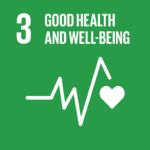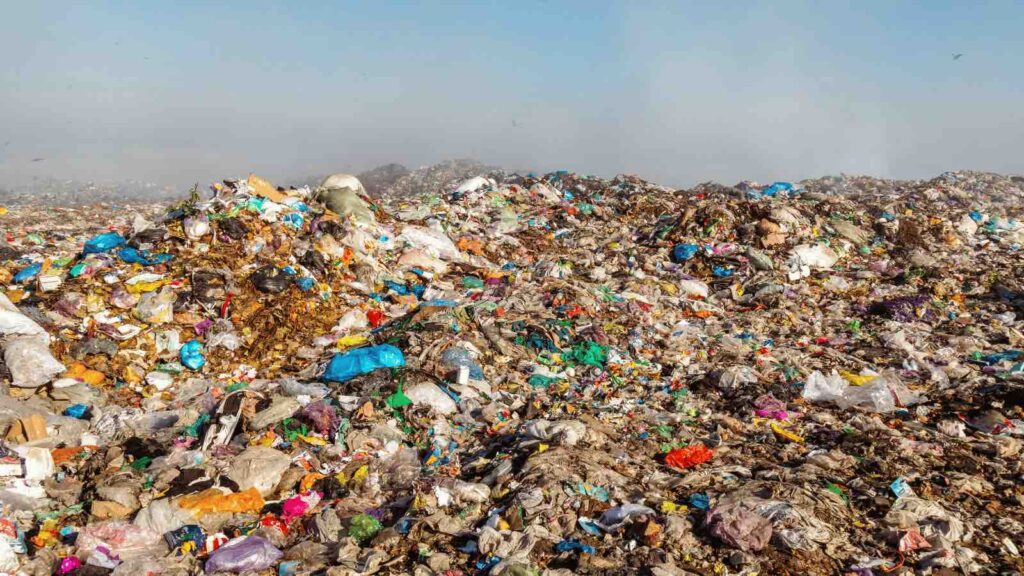As the smoke clears and the soil begins to heal, a crucial question lingers: what changes can we make to shape a resilient, circular and inclusive tomorrow?
Bandung Barat, Jawa Barat, Indonesia — As the remnants of the fire-stricken Sarimukti Landfill continue to smolder, a growing health crisis has emerged in its wake. The fire, which erupted at the Sarimukti final waste processing site (TPA) in West Bandung on August 19, has now been extinguished after a painstaking ten-day effort by combined emergency response teams. The blaze has left a trail of smog and distress in its wake.
RELEVANT SUSTAINABLE GOALS



Explosion, Led to 10 days Fire at Sarimukti Landfill
The governor of Jawa Barat, Ridwan Kamil, confirmed that the flames have been fully quelled, but a lingering haze blankets the area. While the situation at the Sarimukti Landfill is gradually improving, the garbage emergency has yet to be officially declared over.
Throughout the past week, a unified task force diligently tackled the fire outbreak, ultimately achieving success in containing the inferno. Despite this achievement, the waste crisis in the Bandung Raya region remains unresolved.
In response, the provincial government of Jawa Barat has implemented a strategy to divert waste away from the Sarimukti Landfill. Temporary closures of several waste collection points (TPS) in Bandung have been enforced due to the lack of available transportation to the landfill.
Sources from these collection points revealed that for over a week, trash in the Pagarsih area has gone uncollected. Previously, waste was collected three times a day in this region. This accumulation has amounted to a staggering 9,000 tons of stalled waste in Bandung.
To address this growing challenge, the Bandung city administration has initiated emergency measures. Among them is the utilization of land in the Tegalega area, which is being specifically designated for organic waste disposal. Acting Mayor Ema Sumarna unveiled plans for trench-based disposal units, each measuring 6 by 6 meters and extending to a depth of 3 meters.
“Our sporadic approach to handling organic waste involves digging these trenches and then covering them. This initiative is situated in the Tegalega region,” Ema Sumarna disclosed during a press conference at the Bandung City Hall.
She elaborated that the excavation process is well underway, with the intention of facilitating the gradual breakdown of organic waste and enhancing soil fertility. “Starting from today, this process is underway. We aim to complete one or two trenches initially, with a target of eventually having four to five trenches. Our hope is that organic waste will decompose within these units, thus bolstering land fertility,” she asserted.
Ema reassured the public that these organic waste disposal efforts pose no harm to the environment. However, she acknowledged the overwhelming condition of the current waste collection points in Bandung, stating that even the previously available 5 percent of unoccupied capacity has now been filled.
Regarding inorganic waste, Ema expressed intentions to collaborate with scavengers and recycling entrepreneurs. “For inorganic waste, we plan to work in partnership with scavengers, allowing them to repurpose these materials into productive commodities that hold economic value,” she explained.
For instance, Mondays will be allocated for organic waste collection, and any inorganic waste arrivals will be declined. This strategy aims to safeguard the waste collection points. Thus, waste separation initiatives are coordinated at the regional level
Acting Mayor of Bandung, Ema Sumarna
As a part of future efforts, a scheduled waste collection regimen is anticipated. This plan would designate specific days for the collection of organic waste, while refraining from picking up inorganic waste. “For instance, Mondays will be allocated for organic waste collection, and any inorganic waste arrivals will be declined. This strategy aims to safeguard the waste collection points. Thus, waste separation initiatives are coordinated at the regional level,” she affirmed.
Amidst these developments, the deployment of the “Gibrik Mini” waste incinerator remains in progress. The funding for this machinery is earmarked in the end-of-year budget, as part of this year’s local government budget allocation.
“Gibrik Mini has been included in the end-of-year budget plan. While the funding isn’t comprehensive, we are striving to secure it. Currently, approval has been granted for two machines out of a needed ten,” Ema Sumarna disclosed.
You may also be interested in :
Beyond Recycling : How The Circular Economy is Redefining Waste


